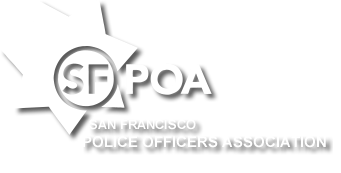Joel Fay, Psy.D ABPP
Psychologist and Retired Police Officer
Forwarded to The Journal by Mary Dunnigan, BSU
People understand if someone with diabetes needs to take insulin. Insulin is a hormone produced in the pancreas and is important for regulating carbohydrates and for allowing certain cells to take up glucose from the blood. No one would blame a person for having insufficient insulin or criticize them for failing to make enough. Everyone would agree that the lack of insulin is not a character defect but a medical issue. But if you ask a police officer about medications used to treat psychological issues, you hear a very different story. Why is this?
I am a retired police officer and a psychologist and although I don’t write prescriptions, I do talk to a lot of cops suffering from depression and anxiety and try to encourage them to take better care of themselves. Improved self-care could include exercise, staying in contact with friends and family, perhaps drinking fewer alcoholic beverages and/or coffee and sometimes, taking a medication. But convincing a cop to take a medication for depression, anxiety or PTSD can be an uphill battle. In this article I will briefly discusses some of the issues surrounding the use of psychiatric medications and dispel some myths.
Let’s start with the basics. The brain is an organ just like the pancreas. Neurons in the brain transmit messages. These messages are sent from one neuron to another through the use of neurotransmitters. The most common brain neurotransmitters that affect our moods are serotonin and norepinephrine. There are a number of others but we will limit this discussion to just these two. The body manufactures serotonin and norepinephrine just like it manufactures insulin. Sometimes, due to a variety of reasons, it fails to make enough of these chemicals. When these transmitters drop below a certain point, people can suffer from depression and/or anxiety. There are some activities that can increase serotonin, e.g., exercise, laughing and being connected to friends/family. But you can’t will yourself to make more serotonin any more then you could will yourself to make insulin. A chemical is a chemical and it doesn’t matter where it is manufactured in the body or where it is used. The same rules apply.
I get lots of questions and comments about using psychiatric medications. Below are some of the most common. I have tried to address each one with enough information to be informative but not be overwhelming.
“I don’t like the idea of something controlling my mind.”
Ironically the first time I heard a cop tell me this he admitted to drinking two bottles of wine a day. While he failed to see the irony in his statement, I understood how his belief came into being. A police officer’s view of the mental health world is skewed. As an officer you regularly meet the most severely ill people, often in crisis and frequently not on their medication. You also meet lots of “normal” people taking psychiatric medications, you just don’t realize. In 2010 more than 253.6 million prescriptions were filled for antidepressants. Prescriptions for anti-depressants are only surpassed in numbers by prescriptions for cholesterol medications. Odds are a number of the people you respect and work with are taking an antidepressant. Anti-depressants are not addicting and don’t control your mind. Untreated depression controls your mind. As a retired cop I would much rather work with an officer on an antidepressant than an officer who should be on one, because a cop on an antidepressant is in control of his/her moods.
“What if I get involved in a shooting?”
One of the main concerns police officers have regarding medication is what will happen after a shooting. This isn’t baseless paranoia but reflects real-life concerns. After a shooting your actions will be reviewed by many different groups but let’s look at the facts.
After a shooting almost every California officer is automatically assigned an attorney. In speaking with attorneys that represent officers, I was informed that they would object to any request for a blood or urine sample barring some exigent circumstance. It is also within a police officer’s rights to refuse to provide that sample. Further, if a police officer does provide a sample, the drugs that are routinely screened for are benzodiazepines, illicit drugs, and alcohol. The screenings do not typically look for other prescribed medications. Finally, if by some odd coincidence you provide a blood sample and that sample is tested for an antidepressant, a lawyer would be very hard pressed to come up with an argument supporting the position that taking an antidepressant somehow caused or negatively influenced the shooting.
In my experience after interviewing hundreds of officers after shootings I have seen very few incidents where a blood or urine sample was provided by the officer and no incidents where the sample was checked for antidepressant medications. If this fear is keeping you from otherwise taking a medication I would encourage you to speak with an attorney who represents police officers to obtain a clearer understanding of the laws and regulations.
“I don’t want to tell my department.”
Every agency has rules governing when an employee should tell them about the use of medication. Most of those rules are similar to “If the use of the medication prevents or limits you from doing your assigned duties...” But there are variations. SFPD General Order 2.03 has three limitations guiding the use of medications.
- You can’t use any controlled substance unless it is prescribed by a physician.
- If you are taking a medication you need to ask your doctor if it would cause impairment. If so, you need to tell your supervisor.
- If you are using any medication (over the counter or prescribed) and you feel you are impaired you need to tell a supervisor.
None of these three restrictions would impair your ability to use a variety of the most commonly prescribed psychiatric medications.
The American College of Occupational and Environmental Medicine (ACOEM) has created an excellent guideline regarding medication use for law enforcement officers (LEO). In those guidelines they write:
“The effect of psychoactive medications should be evaluated in the same manner as any other medication. LEOs should not be restricted simply because they are being treated with psychoactive medication(s).”
A full discussion of the guidelines would be too long for this article but it does state that many of the most common psychiatric medications are considered safe for police work and are appropriate to take without restrictions. Ironically you are more likely to be found unfit for duty because of untreated depression or PTSD than for the use of treatment medication.
“I don’t want to take medication for the rest of my life.”
Many people believe that if you start taking a psychiatric medication you will need to take it forever. In most cases this is not true. Most officers take medications for about 9 months to one year. I ask an officer to make a commitment to take the medication for at least one year from the time they are on a dose that is effective. At the end of that year you reevaluate your situation. Is it better? If you have made some positive changes, relationships have improved, work is fun again, then you talk to your doctor about reducing the medication. Reduce the medication slowly and if life stays good, your brain neurochemistry is back in balance and you can stop.
“I hear there are horrible side effects.”
The most common side effects discussed among officers are sexual side effects. This includes an inability to obtain an erection, delayed orgasm or a decreased libido in both men and women. Not all medications have the same side effects and the effects vary from person to person. If you are taking one medication that is causing undesirable side effects, talk to your doctor about switching to a different medication. Doctors may also supplement one medication with another to alleviate the side effect.
“How would I know which medication to take?”
There is no sure way to prescribe the correct medication on the first try. Antidepressants are particularly difficult to match to an individual. Some people have to try a number of different medications until they find one with little side effects and sufficient positive benefits. This trial and error process could take a number of months. Patience and a good working relationship with your prescribing doctor is important.
You might ask a blood relative if he/she had good results taking a specific antidepressant medication. If so, that medication may be a good place to start. Doctors sometimes prescribe medications matching medication side effects with symptoms. As an example, if an officer is having difficulty sleeping a doctor might prescribe a medication with sedative effects.
There are other medications that are good for anxiety, sleep and even nightmares. Almost all can be taken while working as a cop. A good friend and mentor and former SFPD Officer Al Benner used to say, “Misery is optional.” Medications aren’t the “cure all” or a quick fix but they can significantly improve treatment outcomes and reduce the difficulties you are experiencing in your life.
When you cut through all the BS the main reason most cops don’t take psychiatric medication is because of the stigma. Defeating that is up to you. You deserve a happy and fulfilling life and your family deserves to have you present when you are home. If you are hurting, seek help and keep an open mind.
Joel Fay Psy.D ABPP: Joel ended a 32-year law enforcement career retiring from the San Rafael PD in 2011. Joel is a peer/clinician member and a co-founder of the West Coast Post-trauma Retreat. In addition to his volunteer work at WCPR, Joel teaches a variety of topics to law enforcement throughout California, has a private practice and consults with numerous agencies. Joel is board certified in Police and Public Safety Psychology by the American Board of Professional Psychology. Joel can be reached at joel.fay@gmail.com or at 415 720-6653

